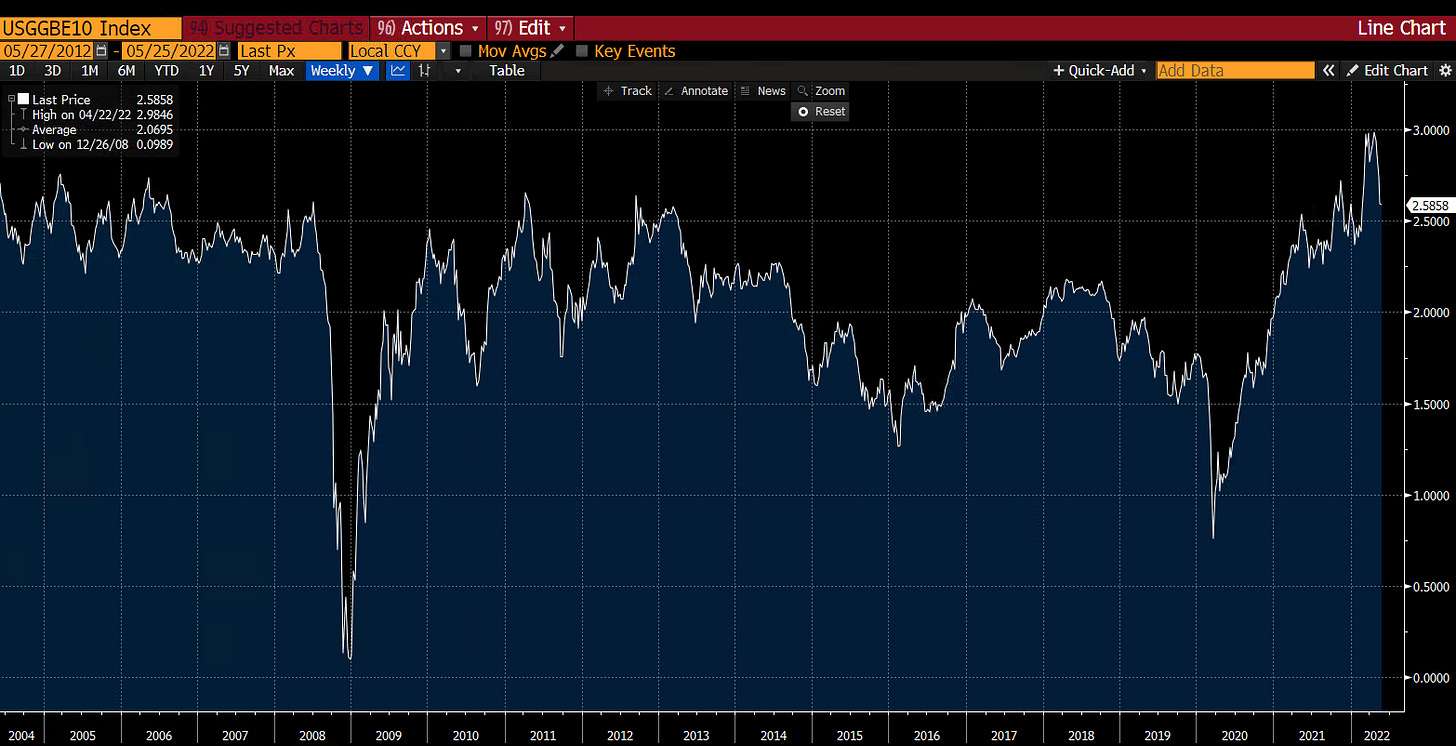Predicting A Bounce
A fool's errand willingly undertaken.
As was pointed out persuasively at this morning's SkyBridge investment meeting, forecasting a bounce is a fool's errand. So I am branding myself accordingly. An evaluation of the potential for a counter trend move in this risk-off bloodbath follows.
In the context of this kind of market-wide regime change (from deflation to inflation), a rebound can be powerful. And often offers a last chance to sell and reposition. In the context of crypto, we think most of the second and third tier smart contract platforms have lost momentum and will remain irrelevant. And that our positioning in the top tier names will serve us well as we enter the next phase of the Web3 technology transition.
Quick Market Thoughts
The market has priced in a 2.75% Fed Funds rate by February 23. That expectation has taken the air out of myriad asset bubbles - growth stocks, SPAC's, crypto and housing among them. (Hopefully, oil will be next.)
The SPX forward earnings multiple is now back to 2019 levels having fallen from frothy 2021 peaks of 22x down to a more comfortable 16x. That's a material correction. Keep in mind that the real rate of interest (the 10 year TIP yield) is only 21bps. It is easy to defend this market multiple if earnings are right. Of course, estimate revisions may turn negative. Though one could be heartened by comments by the banks on the enduring health of the US consumer.
(Yellow line is the forward 12-months earnings multiple. )
Importantly, the market's inflation expectations have receded. See below for the "10 year breakeven" -- the 10 year Bond yield less the 10 year TIP yield. It was heading north of 3% at the end of Q1, and that really lit a fire under the Fed and spawned talk of the 1970's. It has quickly rolled over. Note that the Fed historically turns skittish when this falls below 2%, as that has been associated with deflationary spirals that eventually require unnatural acts -- like negative interest rates. As this gauge falls below 2.5% toward 2%, I think the Fed may declare victory. That also would put a floor on market multiples. And it is safe to assume that short term positioning in this market is cautious -- potentially subject to a squeeze.
Is this like the tech bubble? Our Nasdaq sold off for seven straight weeks for the first time since 2001 - the famous burst of the tech bubble. After the tech bubble, the Nasdaq digested its losses for over a year before putting in a bottom. Here is what that looked like.
Remember that bottoms were called time and again during the extended decay before the 70% 2003 rebound. And nobody called that.
But this is not like the tech bubble. The tech bubble was fueled by equity capital markets which funded spending on infrastructure by hopelessly money-losing CLEC's and Dot.com's. This sell-off is the result of normalization of interest rates, and in that regard, it is less driven by vanishing sources of revenue and negative estimate revisions. So I don't think the comparison is instructive. I think we could bottom sooner.




